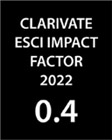Thirty years of the Centre for Regional Studies. Successes and failures in the creation of a new scientific discipline
DOI:
https://doi.org/10.17649/TET.28.4.2682Keywords:
Centre for Regional Studies, Hungarian Academy of Sciences, regional science, research strategy, science policyAbstract
The Hungarian Academy of Sciences (HAS / MTA) created a new research centre in 1984 by merging several academic or scientific workshops then engaged in regional research. This paper seeks to review the 30 years of life of the Centre for Regional Studies, focusing on its results in terms of research and publications, its role in international research networks and its work as a consultant in the field of spatial development. The activities of a research institute cannot, however, be isolated from the overall situation of both its immediate and general environment, and so, as we summarise the distinct phases of these thirty years, the affinity of national science policy, of central and local spatial decision-making agencies and of other stakeholders towards regional research are also discussed.
Among the factors which contributed to the original foundation were the notable spatial development profile of the Transdanubian Institute of the Hungarian Academy of Sciences in Pécs in the 1970s, the personal charisma of the internationally renowned regional scientist, György Enyedi, who was appointed Head of the Institute in 1983, the efforts towards decentralisation then gaining ground in Hungarian intellectual life, several technocrat-politicians at both county and national levels and also the far-sighted leadership of the HAS at the time.
The declared mission of the Centre for Regional Studies at the time of its foundation was the familiarisation with regional science. A variety of forums for the discipline were organised by the Institute’s research fellows: the journal Space and Society (Tér és Társadalom), the series of publications entitled Spatial and Settlement Research, the Academic Committee and the Hungarian Regional Science Association. Among the permanent features of the research portfolio we should highlight the identification of common elements of and within spatial development processes, the evolution of the forms of activity of modern driving forces of spatial development in Europe and Hungary, analyses of the factors behind the general backwardness of rural areas, investigations into the system of objectives, instruments and institutions of spatial policy and also the relationship between multi-level governance, spatial development and regionalism.
The Institute can boast nearly 8,000 scientific publications, and, among those, some 600 books and 1,500 international and foreign-language publications illustrate the scientific contributions of the researchers of the Institute. Further, the English-language series of “Discussion Papers” – published since 1986 – has propagated regional science internationally through no fewer than 94 regular and 14 special issues. These studies have generated several hundred academic citations in international scientific journals.
Over the last twenty years the Institute has participated in 15 EU-funded multilateral research cooperations, in six EU Framework Programmes, four Espon, and eight Phare-Interreg programmes.
The achievements of regional science in Hungary have been recognised throughout Europe, and there has also been considerable demand for new networking ways in Central and Eastern Europe.
The author also identifies failures and describes their causes. The centralisation of the research network of the HAS after 2010 entailed the loss of financial autonomy and dealt a severe blow to the autonomy of science in general. The author concludes by declaring that, based on a community of experienced, internationally competitive scientists with a strong commitment to the Institute’s mission and its scientific results, the Institute will be able to pursue efficient and profitable scientific work in the future in line with international trends of regional development research. However, in order to guarantee the efficient long-term development of the Institute, a higher degree of operational autonomy is required.
Downloads
Published
How to Cite
Issue
Section
License
Authors wishing to publish in the journal accept the terms and conditions detailed in the LICENSING TERMS.






